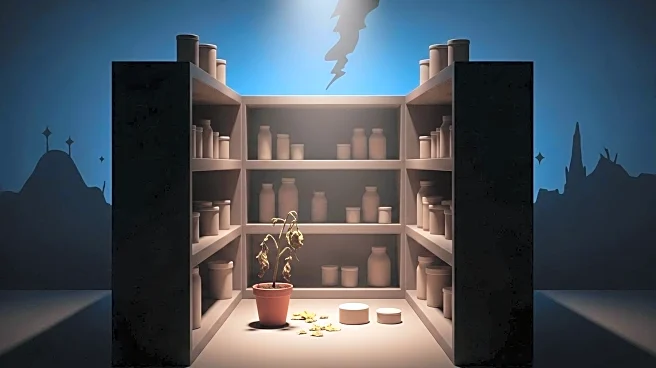What is the story about?
What's Happening?
As Israel prepares for Rosh Hashanah, experts predict another year of food insecurity exacerbated by ongoing conflict and economic challenges. The Israeli National Insurance Institute reports that 20.7% of the population lived below the poverty line in 2023, with significant impacts on vulnerable groups. Organizations like Leket Israel and the International Fellowship of Christians and Jews are addressing the crisis by providing food assistance to affected families, including evacuees, reservists, and war victims.
Why It's Important?
The persistent food insecurity in Israel highlights the broader socio-economic challenges facing the country amid conflict and political upheaval. The crisis affects traditional vulnerable populations and new groups impacted by war, underscoring the need for comprehensive support systems. Addressing food insecurity is crucial for maintaining social stability and preventing long-term poverty. The situation calls for coordinated efforts from government and non-governmental organizations to provide relief and support economic resilience.
What's Next?
Efforts to address food insecurity will likely focus on expanding access to resources and support for affected families. Organizations may increase advocacy for government intervention and policy changes to address poverty and food shortages. Collaborative initiatives between social sector groups and government agencies may be necessary to develop sustainable solutions and improve food security.
Beyond the Headlines
The crisis in Israel raises questions about the effectiveness of current social policies and the role of government in addressing poverty. The impact of conflict on food security highlights the need for long-term strategies to support economic resilience and social welfare. The situation may prompt discussions on the ethical implications of resource allocation and support for vulnerable populations.
















